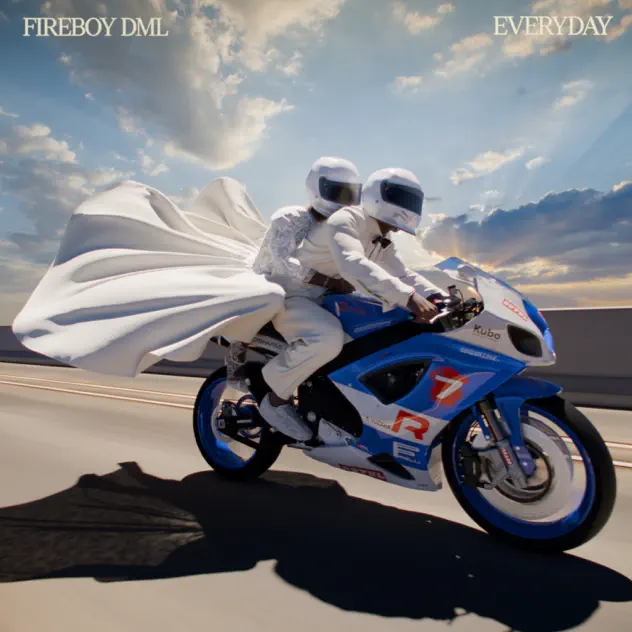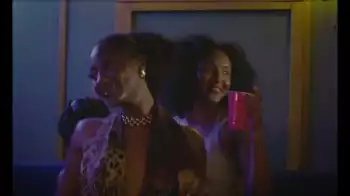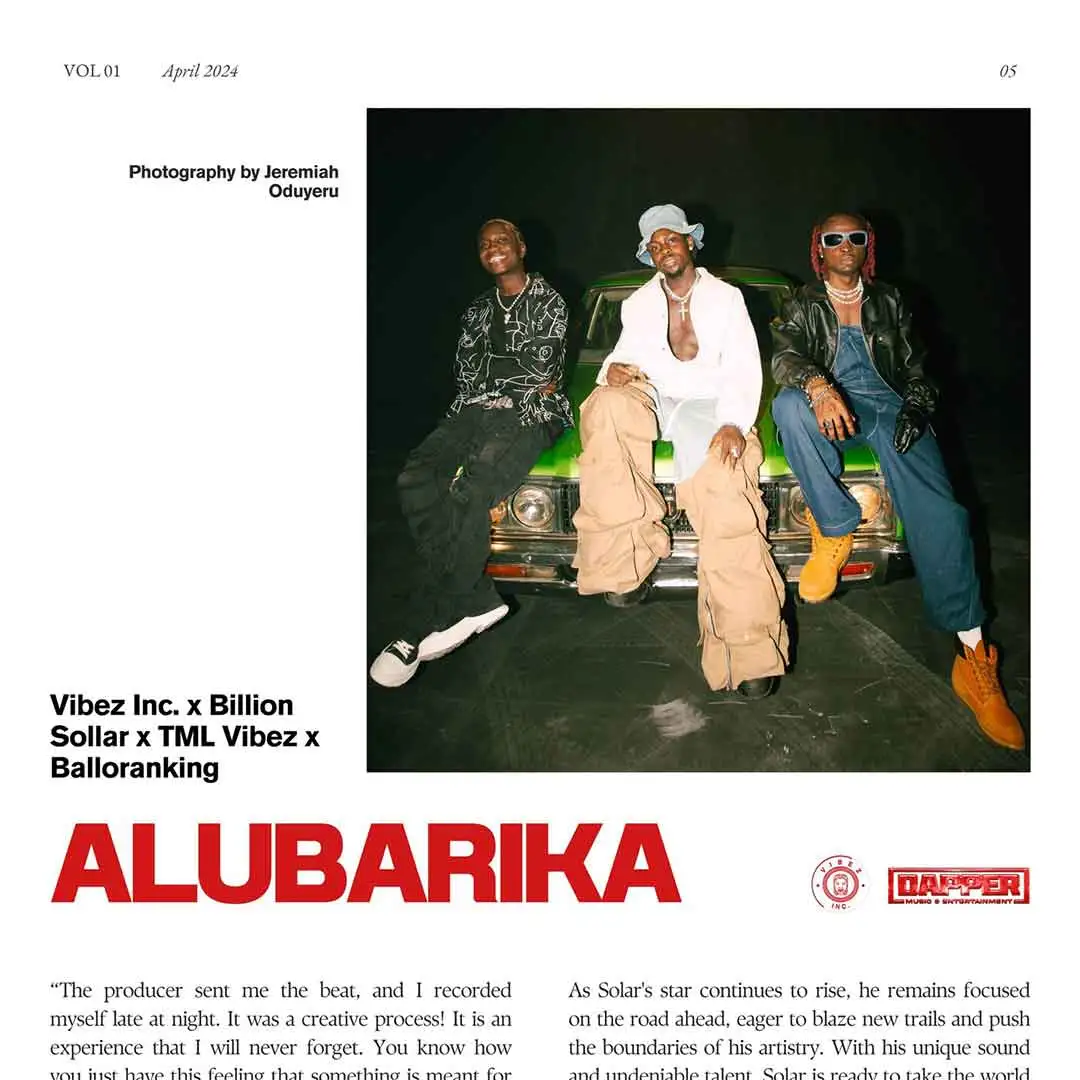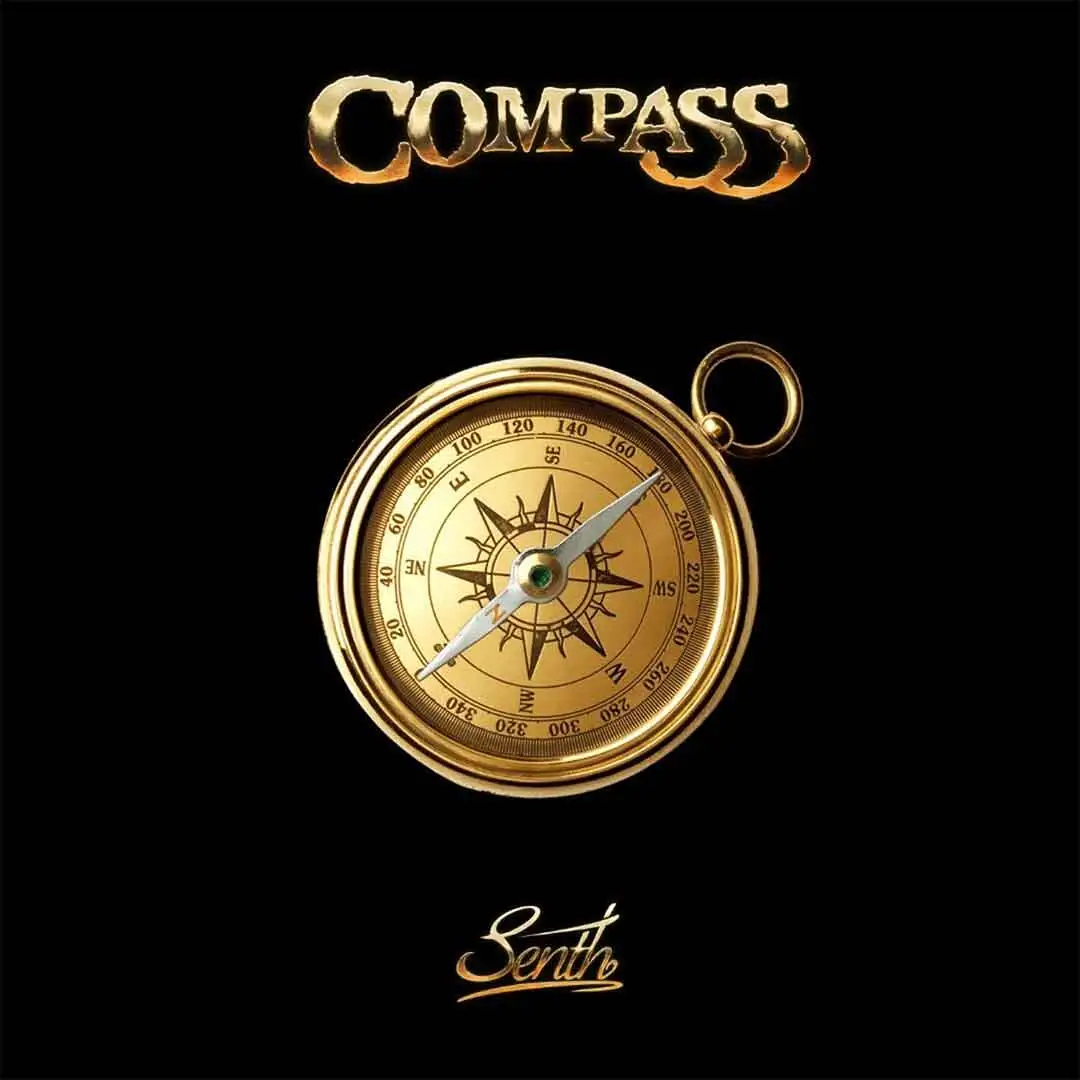Conflicted Destiny - Season 1 Episode 28
.jpg?w=900&ulb=true&ssl=1)
Conflicted Destiny - Season 1 Episode 28
Our young warrior emboldened by events of the past follows the part often envied by others and embraced by some..enters the era so familiar to his people..
Show me one Ibo man who does not love business and I’ll show an eagle that can not fly..no offense my brothers/sisters, this is actually a complimentary stereotype, but once again i digress..back to the story..
**********************************
To our great relief, Ernest returned with the goods a few days later. He gave them to his Lebanese friend and got paid. Apparently, all the goods he brought had been taken from his stepbrother’s shop in Lagos. With the proceeds from the goods, we were able to replace the car engine and continue our journey to Nigeria.
On the morning of July 17, we left Ghana very early and drove through Togo and Benin Republic. We arrived at the Seme border, the border between Nigeria and Benin Republic, at 3 p.m. The Nigerian customs officers insisted on a huge bribe to allow the vehicle into Nigeria. We tried to negotiate with them, to no avail. Eventually, it was decided that we would leave the car at the border and get into Lagos to look for money, then return later to clear the car with customs and get it back.
Ernest and I went to stay at his stepbrother’s house. I couldn’t separate myself from him at that time. My life depended so much on selling the car so I could collect my money and continue my business. I couldn’t take the chance of going anywhere else in case Ernest decided to abandon me. I told him I didn’t know anybody in Lagos.
From what I could sense, Ernest’s stepbrother wasn’t happy to host us. Ernest and his stepbrother had long talks that I suspected had to do with their old rivalry as well as the fact that Ernest was requesting money to get his car from customs and to add to his business.
After a couple of days, Ernest was able to raise enough money to clear the vehicle from customs. He started looking for a buyer for it, but apparently, the price he had set was a little too high for the car’s present condition. After almost two thousand miles of rough terrain, the vehicle had experienced a lot of wear and tear. To make matter worse, when potential buyers heard that the engine had been changed, they would change their minds. The vehicle was sold at a much lower price than Ernest had anticipated, and I immediately told him that I wanted to go to Aba to buy the goods I needed to take to Freetown. He asked me to exercise patience for a couple of days because he was hoping to get some more money from his stepbrother. He appreciated what I had done for him and intended to give me enough money to put into my business. But the next couple of days were very unpleasant because Ernest and his stepbrother kept fighting. It became obvious that he wasn’t going to give Ernest any money. So Ernest finally gave me some cash anyway. It wasn’t enough, but I understood his predicament. I accepted it and left for Aba.
When I got there, I decided to go to CY’s house. I was surprised to find Bongo and Donkey there. They had come back from Liberia, where they had lost everything because of the war. They told me that CY had made his way to Sierra Leone. As for them, they had no idea what to do next. I immediately saw an opportunity. I told Bongo that I could take him to Sierra Leone if he would agree to sell my goods like they had done in Liberia. He jumped at the offer, and it was agreed that he and Donkey would pay their way to Sierra Leone and I would provide them a place to stay in return for selling my goods for me.
With that, I went to the market in Aba and ordered custom-made shoes, mostly for women. I also bought a few handbags. My orders took about three days to complete, and while I was waiting, I went to Orji Uratta to visit my family. My family knew that I was running a legitimate business, selling Nigerian-made products in Liberia and Sierra Leone.
My orders were completed and I returned to Aba, collected my goods, and traveled to Lagos. From there I flew back to Sierra Leone. Fortunately, this time all my goods made it to Sierra Leone. I left the goods at customs and returned to Ernest’s shop. Some of the guys there lent me some money, which I used to clear the goods the next day. A few days later, Bongo and Donkey showed up in Freetown. I picked them up from the airport and took them to Ernest’s shop. The other guys at the shop weren’t pleased, but I didn’t care since the shop belonged to Ernest, and I knew he wouldn’t mind.
Bongo was very much ready for business upon arrival. Within a few days he had made a bunch of contacts and started selling my shoes. Within one week, he and Donkey had sold everything, and after another week all my money had been collected. Subsequently, I returned to Nigeria and brought more shoes. Upon my return, I learned that Bongo had moved out of the shop; he had rented a place for himself and Donkey. He had also allied himself with some of my friends and struck a deal similar to the one I had with him. Consequently, now that he had many people going to Nigeria to bring back products for him to sell, he seemed less enthusiastic and even reluctant about selling mine. Apparently, he had ripped me off so much that the profit he had made from my products was enough to get him started. I was really upset and was thinking of harming him, but I restrained myself. Without anyone else to sell for me, my goods were stored without any potential supplier or buyer. I couldn’t sell them myself—retailing my own products didn’t resonate with my new status as an importer—and I had nobody to do it for me. Frustrated, I decided to walk the streets of Freetown, looking for someone to whom I could supply them.
After talking to a few shopkeepers, luck finally shined upon me when I spoke to the son of a Lebanese shop owner. I later showed the father and son samples of my shoes, which they agreed to display for a few days to see if there would be a demand for it. When I returned two days later, the samples were gone and the shop owners asked me to bring all the shoes I had. From that day on, almost all my shoes went to this shop, and they would pay me a few weeks later.
I also had a few other customers. There was a lady who lived on the street where Ernest’s shop was. Her daughter, Abigail, was dating one of my friends, Emeka. Though Abigail’s mother still lived with Abigail’s father in the same house, she was also dating a married man—her boss at the government ministry. Abigail’s mother took a few samples of my shoes and handbags to her office, and her coworkers liked them. She became one of my vendors. She was doing so well that her lover decided to get into the business. As time went on, I started supplying half of my consignment to her lover.
Now that I had more people buying and selling my shoes and handbags, my trips to Nigeria became more frequent—every two to three weeks. I wasn’t making a lot of profit, though, due to the small capital involved. But I was content. I was running my own business and able to sustain my family with the little profit I was making. I just needed to do it long enough to save money to travel overseas.
Each time I traveled to Aba to get my goods, I would arrive with US dollars and British pounds. Typically, after selling the goods in Sierra Leone in the local currency (Leones), I would convert the Leones into dollars and pounds, which I would then convert into naira when I got to Aba. On every trip to Aba, I stayed at my Aunt Comfort’s house. Her son, Ike, already owned his own shop in the same market where I bought my shoes, and each time he would ask me to give him all of my dollars and pounds so he could exchange them for me—and also use the money for his business for a few days while my orders were being processed. When my orders were ready, I would go to his shop and he would return my money. I didn’t mind this arrangement, even though I knew he was ripping me off every time he exchanged the foreign currencies for me. The rate at which he claimed to have changed the money was much higher than the going rate elsewhere. But since he was my cousin, it never bothered me. On several occasions I pleaded with Ike to invest with me in order to increase my capital and boost my profit margin, and each time he would decline, saying that he didn’t have enough money. Yet he was more than happy to use my money to do business each time I was in Aba.
Meanwhile, I stayed informed on what was going on in my beloved Liberia. By September, the West African community was trying to persuade President Samuel Doe to go into exile, but he refused. He was later persuaded by the Nigerian head of state to seek exile in Nigeria. Subsequently, he accepted and flew his family to Nigeria using the Liberian government executive jet. The Liberians were relieved, thinking that Doe had finally left, but there was a bizarre turn of events: instead of remaining with his family in Nigeria, Doe said he would not abandon Liberia and was willing to die fighting. Ironically, he was captured and killed a few days after returning from Nigeria.
The port area of Liberia, Bushrod Island, was controlled by Prince Y. Johnson at this stage during the rebel incursion into Monrovia. Apparently, Doe and Johnson had initially reached an understanding to establish a certain level of cooperation since Charles Taylor had become their common enemy. Johnson was now heading a breakaway faction from Taylor’s group. Doe, believing that he had a trusted partner in Johnson, arranged with him to visit the Freeport and assess the possibility of bringing more arms into the port.
That morning Doe went to port with minimum security, leaving behind the ECOMOG (Economic Community of West African States Monitoring Group) troops that had been assigned to him. Upon his arrival at the port, Johnson’s men captured Doe. During his subsequent interrogation in a video, which was later marketed in West Africa, Doe was completely humiliated and tortured. Johnson and his men had Doe stripped Unclad and on his knees; at one point he was shown begging for his life. Johnson kept asking Doe where the country’s money was, and Doe tearfully continued to beg for his life, reminding Johnson that they had been best friends since they were in the armed forces. Johnson kept humiliating Doe and saying, “You call yourself a president? Where did you put the people’s money?” At another point in the video, Johnson called the United States embassy and told U.S. Ambassador that he had the president of Liberia and wanted to negotiate with the United States. Later in the video, Doe’s ears were cut off and shoved into his mouth, and he was ordered to eat them. At the end, he was tortured to death.
I was stunned to learn the news. Poor Liberia was still in chaos.
I continued to travel between Sierra Leone and Nigeria for business. In November, Ernest brought Chukwuka—the guy who bought his Mazda—with him from Nigeria. It wasn’t surprising, though; Ernest had always let his kindheartedness overshadow his good business sense. Not long ago, he had also brought Pascal, one of his suppliers, from Nigeria. He didn’t take into consideration the fact that each time he brought a new person to Freetown, the market got more saturated. The number of Nigerian suppliers kept increasing, but there was no corresponding increase in the number of vendors to supply the goods to.
Chukwuka owned many shops in Lagos and normally supplied goods to most of the guys who brought goods to Sierra Leone. He wanted to diversify his business, so instead of staying in Lagos and waiting for people to go there to buy from him, he decided to bring his goods to Sierra Leone and supply them directly to the Lebanese himself, thereby cutting off the middlemen, Ernest, and the rest. We all ended up living together in Ernest’s shop.
Chukwuka and I became good friends. We were always together, and I would accompany him to get his supplies while I waited to be paid by my clients. He was impressed by how my shoe and bag business was moving, but he couldn’t understand why I was dealing in small quantities. I confided in him about my financial constraints. I later realized that he might be interested in investing with me. As time went on, we started having conversations about it, but he was looking for a long-term commitment. He had been a businessman for a long time and owned several shops, so this was his life. But for me, though I enjoyed what I was doing, it wasn’t something I saw myself doing for a long time. This was merely a conduit to my overall goal of traveling overseas. I didn’t reject Chukwuka’s offer to team up with me outright; rather, I asked him to invest a little in shoes and see how he would like it before he committed to anything on a larger scale.
By December, my desire to abandon everything and go overseas had become insuppressible. After selling my goods in Sierra Leone that Christmas, I determined that I would not be returning to Sierra Leone the next time I went to Nigeria. I had researched and found out that I could travel to Malta without a visa. Malta belonged to the British Commonwealth, and Nigerians didn’t need a visa to travel there. The idea was when I got to Malta, I could easily go from there to Spain or Italy. I left Sierra Leone without telling any of my friends what my plans were.
However, as I was leaving, Chukwuka asked me to buy shoes for him. Instead of telling him I wouldn’t be returning, I saw it as an opportunity to rip him off. I was to buy one hundred pairs of shoes for him as test run prior to him investing more into the shoe business. I accepted the money. Upon my arrival in Aba, I bought a hundred pairs of shoes of lesser quality and inflated the purchase price by fifty percent. I sent the shoes to Chukwuka through the help of other guys returning to Sierra Leone. I then bought my round-trip ticket to Malta.
On January 10, 1991, I was packed and ready to fly to Europe. Though I was very excited, there was a nagging uncertainty at the back of my mind. It felt like something was going to go wrong. I checked in my luggage and went to the departure hall to wait for boarding. When I arrived, my heart stopped beating: Bobby was sitting at one of the benches at the boarding gate. He was the last person I would have expected to run into. Luckily, I needn’t have worried; on the contrary, Bobby was happy to see me. He told me that he and Elise had survived the mayhem in Liberia and returned to Nigeria. Elise had eventually traveled to Spain, and Bobby was about join him there. He whispered that he was traveling with someone else’s passport. Someone had used his passport to obtain a visa, after which he sold the passport and visa to Bobby; now Bobby had assumed the name on the passport. I told him that I was making my way to Malta. We said our goodbyes, and I continued on to my boarding gate. My flight would take me from Lagos to Rome, and from Rome, I would change planes for Malta.
Luckily, I had no issues boarding the plane. I reached my seat and put my bag in the overhead compartment, my heart pounding the entire time. I felt like the security guards would come and pull me out of the plane at any moment. After takeoff, I started to calm down. The pilot announced that we would arrive in Rome in six hours. After an hour, I had a change of heart: I decided not to continue on to Malta. I figured that it would be more difficult to go anywhere from Malta, granted that it’s an island, whereas if I stayed in Italy, I could easily travel by road to either Spain or France.
But in order to stay in Rome, I had to somehow destroy my passport and claim asylum in Rome. Without giving it a second thought, I went straight to the toilet, tore up my passport, and flushed it down the toilet. I returned to my seat feeling a little relaxed. I was open to whatever future awaited me in Rome.
Meals were served and I washed mine down with two mini bottles of Cabernet Sauvignon. We arrived in Rome at 6 a.m., and I was immediately impressed by how magnificent the airport looked. I was thrilled to be in Europe for the first time; however, I needed to remain calm and take it all in stride. I knew this joy wouldn’t last—I would have to face reality once I got to immigration.
Unfortunately, even with my careful planning, I had forgotten to take a winter jacket. Nevertheless, coat or no coat, I was in Europe, and that was all that mattered. Besides, Europeans were said to be generous people; I was sure it wouldn’t be hard for them to find me a jacket. I continued toward immigration. For a minute, I regretted tearing up my passport—it would allow me to get on my connecting flight to Malta without a problem, should I have changed my mind again decided not to stay in Rome.
I casually tried to walk through immigration, but they stopped me and asked for my passport. Since I couldn’t speak Italian, I made an expression implying that I didn’t have one. The officer immediately alerted the police, and I was taken to a detention hall at the airport. To my surprise, there were many other people—Africans, Pakistanis, Indians—who had been detained for immigration violations. Among them was a young Ghanaian girl, Helen, who was crying uncontrollably. She was traveling to America with a fake British passport, and had been caught and detained in Rome since the previous night.
I settled into a corner in the detention room, waiting my fate. After what seemed like ages, Italian immigration personnel brought us some apples and pears. All the while, I remained calm, calculating how to pursue the asylum angle, which became the obvious choice. Without a passport, I couldn’t be deported anywhere. My country of origin could…
[ads4]
******************************
To Be Continued…

.png?w=300&ulb=true&ssl=1)
.jpg?w=300&ulb=true&ssl=1)
.jpg?w=300&ulb=true&ssl=1)




![Deaw Special Super Soft Power (2024) [Thai]](https://www.memesng.com/r/storage.waploaded.com/images/b675bcd2729ccacc87521af7756011eb.jpg?w=50&ulb=true&ssl=1)
![Free Money (2023) [Estonian]](https://www.memesng.com/r/storage.waploaded.com/images/078db976c9c922a1c9c18a9a032b6c2b.jpg?w=50&ulb=true&ssl=1)













![Ninja Kamui (2024) [Japanese] (TV series)](https://www.memesng.com/r/storage.waploaded.com/images/269fcbec2b9d7d5506a919f192f2e61d.jpg?w=50&ulb=true&ssl=1)
![The Escape of the Seven Resurrection (2024) [Korean] (TV series)](https://www.memesng.com/r/storage.waploaded.com/images/2a7d90cddc2687327a1fdc3bef1e6d2e.jpg?w=50&ulb=true&ssl=1)
![Beauty and Mr Romantic (2024) [Korean] (TV series)](https://www.memesng.com/r/storage.waploaded.com/images/ecd8a3a73377eece67c71f1551596799.jpg?w=50&ulb=true&ssl=1)
{{comment.anon_name ?? comment.full_name}}
{{timeAgo(comment.date_added)}}
{{comment.body}}
{{subComment.anon_name ?? subComment.full_name}}
{{timeAgo(subComment.date_added)}}
{{subComment.body}}